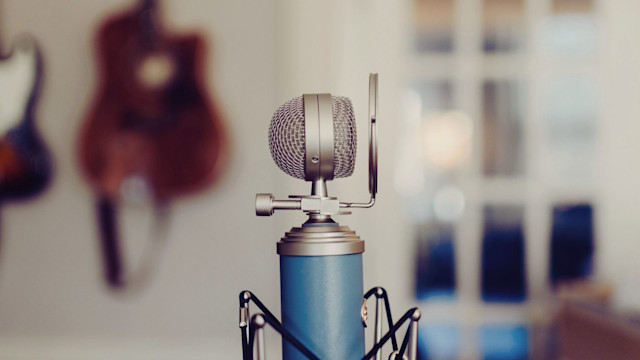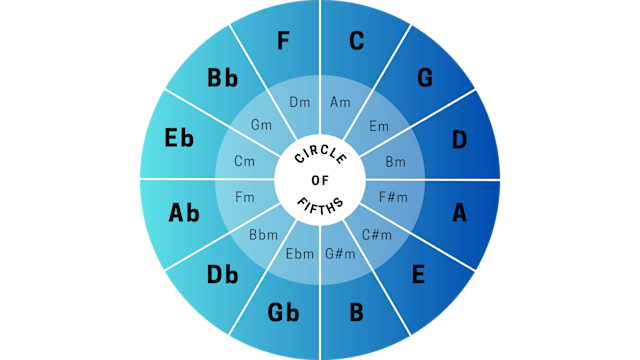Best Songwriting Tools & Software For Better Songs
October 14, 2024 - Discover the best songwriting tools to enhance your creative process, from online DAWs to helpful apps, and turn your ideas into polished, memorable songs.

The creative process and craft of songwriting are something all of us songwriters are always working on. Anything that can make the process better and easier is a welcome addition.
Technology today has brought on many amazing tools we can use. This includes some great songwriting apps and software that can help shape your ideas into compelling melodies and heartfelt lyrics.
Whether you’re looking to streamline your songwriting process or explore new creative avenues, these tools can be invaluable.
Best Songwriting Tools & Software
Songwriting Software and DAWs
Digital Audio Workstations (DAWs) are essential for turning your musical ideas into polished tracks.
There are many options for DAWs out there, and all of them work well for getting your songwriting ideas down. It just comes down to your preferences and workflow which works best for you.
1. Soundtrap
Soundtrap is a great option if you're looking to work online and get set up with minimal effort and headaches. It's an online DAW that works directly from your browser and doesn't require you to install anything before you can get into your creative flow.
Soundtrap comes with all the basic sounds, instruments and loops that you need. It's a full online production studio available at your fingertips.
2. GarageBand
GarageBand is a free DAW that's perfect for beginners with an Apple device, offering intuitive interfaces and built-in loops.
3. Logic Pro
Logic Pro is a professional-grade DAW designed for Mac users, offering advanced tools while remaining accessible to those with basic production skills. It’s packed with a vast library of instruments, loops, and effects, making it an excellent choice for detailed composition and audio editing.
4. Ableton Live
Ableton Live, renowned for its versatility, supports creating MIDI tracks, using drum machines, and applying return tracks, making it ideal for more complex arrangements.
These tools allow you to experiment with different sounds and compositions, bringing your songs to life.
Mobile Songwriting Applications
Mobile apps have revolutionized how you capture spontaneous ideas.
Apps such as Google Docs and Apple's Notes let you jot down lyrical thoughts anytime. Google Drive, Dropbox and other cloud based storage platforms can help you share your ideas with any collaborators.
Voice memos and recording mobile app options are also great for capturing quick ideas; I use the iPhone Voice Memo app just about daily for recording ideas.
You can access all of these apps conveniently on Android and iOS devices and through each app store. They allow you to connect with your music wherever you are, making the songwriting process more dynamic.
Recording and Editing Ideas

Recording ideas is crucial for refining your songs. Tools like portable audio recorders and audio interfaces enable you to capture and edit high-quality audio files.
Simple voice recorders on your phone are great for quickly recording melody or lyric ideas, but sometimes you'll need more recording features.
This is where a DAW comes in; If you want to work in one, you'll need an audio interface. It helps connect your instruments and microphones to your DAW, allowing for more detailed recordings.
The ability to edit these recordings helps you shape your song before you commit to a final version.
These tools ensure that your creativity is never missed and can be fine-tuned for your intended sound.
Starting with Songwriting Basics
Before you get into using all the different songwriting apps and software, it's important to get a grasp on the basics of music theory. You don't have to become an expert on it (though it won't hurt if you do!) but understanding how music theory works is a crucial step in becoming a better songwriter.
Understanding Music Theory
Music theory is an essential tool for every songwriter. It helps you make sense of musical ideas and construct effective chord progressions.
In my personal experience, understanding music theory is important because it removes a lot of the guess-work from your creative process. It provides a framework you can build your ideas on.

Circle of fifths is one of the building blocks of that framework; it can guide you in choosing compatible chords.
You should also learn basic topics like scales and chord changes. This knowledge combined with the circle of fifths can help you easily transition between chords and create more dynamic songs. You'll find it easier to understand patterns in music and apply them innovatively.
Familiarize yourself with common structures and terms, like major and minor chords. This knowledge will be invaluable when shaping your song ideas or working on perfecting a melody!
Unblocking Creativity
Writer’s block can be a challenge, but there are multiple ways to spark new ideas. Here are some of my favorites:
Keep Notes
Keeping a notebook or using a notes app on your phone to jot down song ideas or phrases whenever inspiration strikes is a grat way to keep the creative flow going.
Change Your Environment
Changing your environment or routine can also work wonders. A new setting might provide the right words or a fresh perspective.
Mind Maps
Use tools like mind maps to explore related and similar-sounding words.
Collaborate
And last but not least: You should consider collaborating with other songwriters.
Personally I work with a lot of co-writers because not only does it help with inspiration and creativity in general, but it also can help me get over writers block.
Exchanging ideas with a like-minded co-writer often leads to breakthroughs and nurtures creativity.
Lyric Writing and Rhymes
Writing lyrics is integral to songwriting.
Use a rhyming dictionary to explore near rhymes and expand your vocabulary. These tools can help make your lyrics fit the melody and rhythm smoothly.
Experiment with different rhyme schemes to see what suits your style. Rhyme Zone and other digital rhyming tools offer alternatives for words you might get stuck on.
Keep in mind that lyric writing is a blend of creativity with technique. You should focus on clear imagery and emotion. Play with metaphors and similes to craft memorable lines.
Taking Your Songwriting to the Next Level
Advanced Song Construction
We all want to write hit songs! Understanding the intricacies of song structure is one of the keys to getting your songs to that level.
Begin with melodic themes that hook your audience. The themes should connect rhythmically and emotionally with your song lyrics.
Make sure to incorporate sections like verses, choruses, and bridges to maintain listener engagement. It also sets you up with the mindset of completing full songs rather than just a collection of great ideas.
This consistent structure can transform a simple idea into a polished composition.
Collaboration and Feedback
Collaboration is a key aspect of advancing your songwriting craft. I can peronally attest to this, as all of my most successful songs are cowrites with some of my favorite writers and artists.
Use tools like video chat for real-time exchanges of ideas with fellow musicians. This approach not only sparks inspiration but also refines your work through constructive critiques.
Discover new lyric ideas by seeking feedback and collaborating with artists and writers from diverse backgrounds. Sharing in this manner fosters creativity and can lead to unexpected breakthroughs or new perspectives that you might not have thought of on your own.
Learning and Development
Continual learning is essential in keeping your creative edge. In my opinion, this same attitude applies to all of life; the moment you stop learning is when you stop evolving and improving.
Enroll in online courses focused on songwriting to gain insights from industry experts. Many of these programs offer structured learning environments to sharpen your skills.
Pursuing a certificate program in music can further enrich your understanding and open doors to new opportunities.
Whether through formal education or self-study, broadening your knowledge base is a great tool for achieving growth and success in songwriting.
Exploring Genres and Musical Styles
Adapting to Different Musical Styles
To adapt your songwriting to diverse musical styles, start by exploring genres that spark your interest, such as jazz, blues, or pop.
Each genre has its own set of conventions involving rhythm, chord progressions, and lyrical themes. By experimenting with these elements, original songs can take on new dimensions.
Trying out different keys can give a unique flavor to a piece.
Instruments and their Influence
Instruments have a profound impact on the emotional expression of a song. Different instruments may inspire a shift in songwriting approach, impacting both melody and harmony.
For instance, an acoustic guitar often brings a warmth and intimacy that resonates in pop, folk and country genres. A guitar player using a specific minor chord can evoke a melancholic tone, while using a different key can change the mood entirely.
Inspiration and Resources
Leveraging AI
I'm not a fan of AI tools that just create music for you. AI can't create new music, it can only analyze existing music and create based on what it learns.
On top of that, there are copyright issues with any music that was created using AI, which means you wouldn't be able to use it for any commercial purposes like licensing deals or releasing it on streaming platforms like Spotify.
The whole point of using any tools in your writing process is to help you be more creative, not hand over your creativity to a tool.
You can use AI to brainstorm storyline ideas for your song, or get it to help you research a topic for lyrics.
As I said... don't ask it to write lyrics for you. Instead, talk to it like it's your assistant, who goes out and gets you information and details that will help spark ideas or fill in details in your song's story.
When it comes to the actual lyrics, write the words yourself. And always check any facts provided by AI.
Iconic Songwriters and their Techniques
Another great way to learn is to study the craft of songwriting through the lens of legendary musicians.
Songwriters like Bob Dylan utilize unique storytelling techniques and memorable rhymes that inspire many. Understanding their methods and exploring how they craft lyrics and melodies can be an invaluable tool for your own work.
Analyzing the success of iconic songwriters also highlights the importance of personal expression and emotional authenticity in music. By examining their creative process, you can pick up on the subtle nuances that make their songs resonate.
Conclusion
The great news is that with modern technology at our fingertips, there are plenty of songwriting tools and software available to help with your creative flow and craft.
From online DAWs like Soundtrap to tools like Rhyme Genie, you can streamline your music composition and make the complex creative process a little easier.
Learning the basics of music theory and song structure are also important, so be sure to not only rely on tools but also develop your personal skills.
With these helpful features and the right mindset you can elevate your songwriting process, and your next new song could be a hit.
About the author
Tero Potila is a professional music composer and producer. His career combining knowledge and experience from music, TV, film, ad, and game industries gives him a unique perspective that he shares through posts on teropotila.com.
Get started with Soundtrap today!